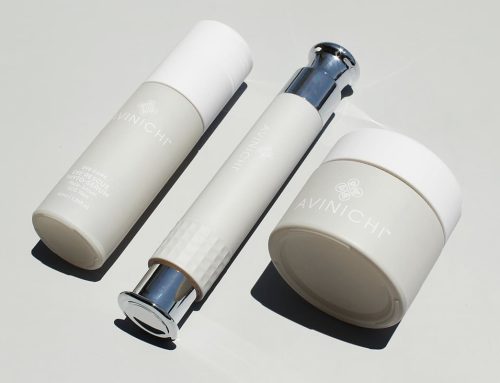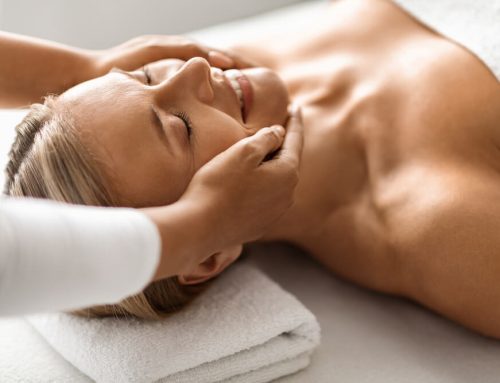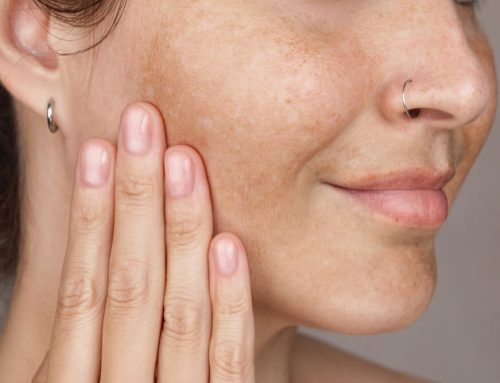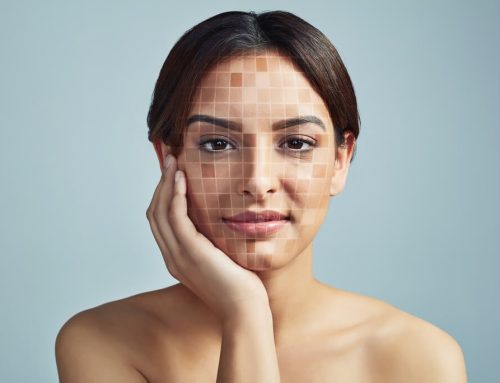With summer just around the corner, it is now the perfect time to up your sun protection game! Aside from creating a sunburn-free beach vacation for you, sunscreens also help you avoid the sunrays’ harmful exposure among any other things. If you are still one of those people who does not believe in the powers of sunscreens, allow us to enlighten you on the basics of this.
Why Use Sunscreen?
As mentioned above, being exposed to the evil UV rays of the sun can cause some serious issues on your skin. UVA, UVB, and UVC are the three kinds of UV rays that the sun emits.
UVA is the type of UV rays which can penetrate through glass and hurt your skin even if you are indoors. They are also the leading causes of skin aging. UVB is a type that cannot penetrate the glass but can cause skin burn. It is the main factor of your sunburn whenever you take your vacation on the beach! Lastly, UVC rays are the most dangerous, deadliest, and most damaging kind of radiation. Thankfully, this does not reach the earth’s atmosphere due to the ozone layer.

With UVA and UVB posing serious threats on your skin, this can prove how important it is for your skin to stay protected all the time. Experiencing these skin threats are more common especially with the upcoming summer season.
Choosing the Right Sunscreen
Choosing the right sunscreen is not as simple as it was before. The next generation sunscreens have their own edge over the previous brands given the emergence of strong competition. Given all of these effective choices, how would you know which one to buy?
1) High SPF
The SPF Factor is the first thing you should look into when purchasing a sunscreen. The said SPF Factor rates determine how effective a particular sunscreen is when it comes to preventing sunburns which are caused by UVB rays.
So, how does SPF work?
Usually, a person burns in 10 minutes. To compute how long you could go before burning, you have to multiply the time stated to the SPF factor. In this case, multiply 15 to 10 minutes. This means that you could go approximately 150 minutes before you burn.
For most people, a sunscreen of SPF 15 is already enough for them. However, dermatologists recommend those who have fair skin, who have conditions like lupus, and who have a family history of any skin cancer, they should opt for a stronger sunscreen with an SPF of 30 or higher. The reason for increasing the SPF for these kinds of individuals is their current skin conditions make them more sensitive to sunlight; hence, more vulnerable to skin threats.
Just a friendly reminder: it does not mean the higher the SPF, the higher the added benefit it poses.
Contrary to popular belief, a sunscreen with SPF30 is not considered as twice as strong as compared to that with SPF15. According to tests, SPF15 filters out around 93 percent of UVB while SPF30 filters out 97 percent of UVB. It shows there is only a slight improvement when upgrading your sunscreens.
2) The Ingredients
Unlike UVB, UVA protection has no specific adopted rating which can show you its ability to block the said radiation. Hence, when ensuring the presence of UVA protection, pay attention to the ingredients of the sunscreens. Look for one which will contain either of the following ingredients:
- Zinc Dioxide or Titanium Dioxide – If you have heard about the tale of either of these ingredients making your skin look pale and ghostly, do not listen to them. The new sunscreen manufacturing techniques in the modern day have already resolved this problem.
- Ecamsule – Ecamsule is one of the recently approved ingredients which can block UVA rays. It is probably one of the most expensive ingredients since it costs around $30 for just a 3.4-ounce tube – barely enough to do a full-body application four times.
- Avobenzone – Avobenzone is a stabilized version of a UVA blocker. This substance is something not all sunscreens contain.
3) Comfortable Formula
“Sunscreens come in a variety of formulations—creams, gels, lotions—so pick one that works for you. For example, gels are great for oily skin or hairy areas, while creams are better for dry skin,” Dr. Shah explains.
This kind of technique is a trial-and-error kind of approach. You have to test several products to see which one is the most comfortable for you. At times, there are sunscreens which might cause a film on your skin or which might make you feel sticky. Hence, it is essential to pick something which you have the stomach to place and follow through with regularly wearing even if you are not planning to spend your day outdoors.
Make sure to buy something that will also be compatible with your skin type. Many sunscreens are made to address those individuals with sensitive, oily, and dry skin.
If you are someone with dry skin, look for a sunscreen which contains either glycerin, oils, silicones, lanolin, and aloe. Do not also use sunscreen gels or sprays which has alcohol in it. For those with oily skin, the best type of sunscreen for you are those that are lightweight or in the form of a gel lotion with ingredients such as isododecane and silica. Lastly, individuals with sensitive skins can opt for sunscreens that are fragrance-free and hypoallergenic.

4) Sweat and Water Resistance
If you are the sporty type who spends the day exercising vigorously outside or in the water, make sure to get a sunscreen which is resistant to both sweat and water.
“Sunscreens can be tested for either 40 or 80 minutes of water-resistant protection, but reapplication of the sunscreen is necessary every two hours or after heavy perspiring, swimming, or just being wiped off with a towel,” Dr. Frye shares.
5) Kid-Friendly Sunscreen
If you are buying a sunscreen for children, make sure not to choose the adult sunscreens since these can easily irritate the sensitive skin of babies. Avoid sunscreens which houses ingredients such as para-aminobenzoic acid (PABA), sulisobenzone, dioxybenzone, and oxybenzone.
The best kid-friendly sunscreens can contain titanium dioxide and zinc dioxide. These ingredients are known to protect the skin of the young ones without their skin absorbing them.
6) Date of Manufacture
The more recent a sunscreen is manufactured, the fresher it is, and the better is its efficacy. It is essential to consider this aspect since the ingredients of this product tend to break down easily even if they are just stored on the bathroom shelf. To ensure the freshness of your stock, avoid buying in bulk. Wait until you use everything or until the sunscreen expires.
Tips on Applying Sunscreen
It is not enough to just choose the best sunscreen to use; it is also essential to know how to apply it effectively. Here are some tips from various dermatologists which you can include in your daily routine:
- Apply sunscreen 20 to 30 minutes before exposing yourself to the sun. It is the most appropriate time for the skin to absorb the sunscreen and provide protection. If you fail to do this, the tendency is the sunscreen won’t be as effective as expected.
- Lay it on thick and use the appropriate amount. The recommended volume of application of sunscreen is at least one tablespoon on your face and approximately two ounces for your body. If you don’t apply a thick layer to your skin, you are most likely just getting the benefits of an SPF 10 from your SPF 30 sunscreen.
- Do not skimp on the sunscreen. Make sure to cover all of the exposed skin such as your neck, ears, top of your feet, legs, and face. Ask for help from other people when you are trying to cover the areas which are harder to reach. You may also opt to use a spray sunscreen just in case there is no one available to apply it for you. If you have thinning hair, you can either wear a wide-brimmed hat or apply enough sunscreen to the exposed scalp.
- Regularly reapply sunscreen. Do not rely on advertising tactics on its “all-day protection” ability because, in reality, the benefits of sunscreens wear off only after a couple of hours. Hence, make sure to lather at least a golf ball-sized amount every two hours. In case you are using a spray screen, or you are engaged in physical or water activities, the frequency of reapplying the product should be every 60 to 90 minutes.
- Do not directly apply the sunscreen to your body. Instead, put moisturizer first to avoid having dry skin. However, this step is less important if your sunscreen houses either titanium dioxide or zinc oxide.
- Lastly, do not rely on sunscreen alone. Unfortunately, this product is not enough to completely prevent blisters, sunburns, or skin cancer. It is recommended to take added precautions which can help you in your cause of protecting your skin. You can give your skin additional protection by wearing the following:
- a wrap-around sunglasses which houses UV protection
- a lip balm which has SPF 30 or higher
- cotton clothes since it is considered a piece of clothing with an SPF of 4
- cap, stole, or scarf
- a woven hat which has a wide brim

The Benefits of Wearing Sunscreen
Aside from shielding yourself from the harmful UV rays, there are still other countless benefits that sunscreen can bring to the table. Here are some of the reasons why:
1) Prevents Premature Aging
Admit or not, you like to have a healthy, younger, and radiant looking skin. It is probably one of the most convincing reasons why you should regularly use this product. Sunscreen shields you from the possibility of developing some signs of aging such as fine lines and wrinkles.
In fact, according to several studies, individuals who are under the age of 55 who use sunscreens regularly have lesser chances of housing the said aging signs.
2) Keeps Complexion Even
UV rays from the suns are probably one of the leading causes of having uneven skin tones on your face and body. Using sunscreen can avoid these kinds of skin threats on you. It will enable you to find the perfect balance in your skin.
3) Reduces Cancer Risk
Sunscreens are very effective when it comes to reducing the chances of acquiring any skin cancer, especially melanoma. Melanoma is known to be one of the most life-threatening and aggressive skin cancer types for women. Those in their mid-20s are the ones who are most affected by melanoma.
Daily applying sunscreen will help you combat these various types of skin cancers. Its cumulative protective benefits from the regular application will be your number one shield in these instances.
4) Lowers Face Blotchiness
According to studies, blotches are one of the main reasons why women feel less confident about themselves. Applying sunscreen liberally onto your face will help you address the onset of an irritating blotchiness and the eruption of the red veins. This daily routine is also crucial when you are trying to prevent the outburst of acne or other types of sunray-induced skin damages.
5) Prevents Sunburns
If you are out on the beach, sunburns are probably your number one nuisance. Aside from its stinging feeling, sunburns also weaken your skins which then subjects you into developing bruises. You might also experience repeated episodes of swelling, hives, itching, peeling, and redness.
6) Translates To Healthier Skin
Sunscreens house essential skin proteins which are always needed by the body. Some examples of which are keratin, collagen, and elastin. These are critical in keeping your skin healthy and smooth. Hence, make sure to use a sunscreen which has titanium oxide as one of its ingredients to experience this specific benefit.
Regularly applying sunscreen might be too much of a hassle for you but if you take into account all of the benefits it poses into your skin health, you won’t have to think twice anymore. So, what are you waiting for? Get your sunscreen now!






Leave A Comment